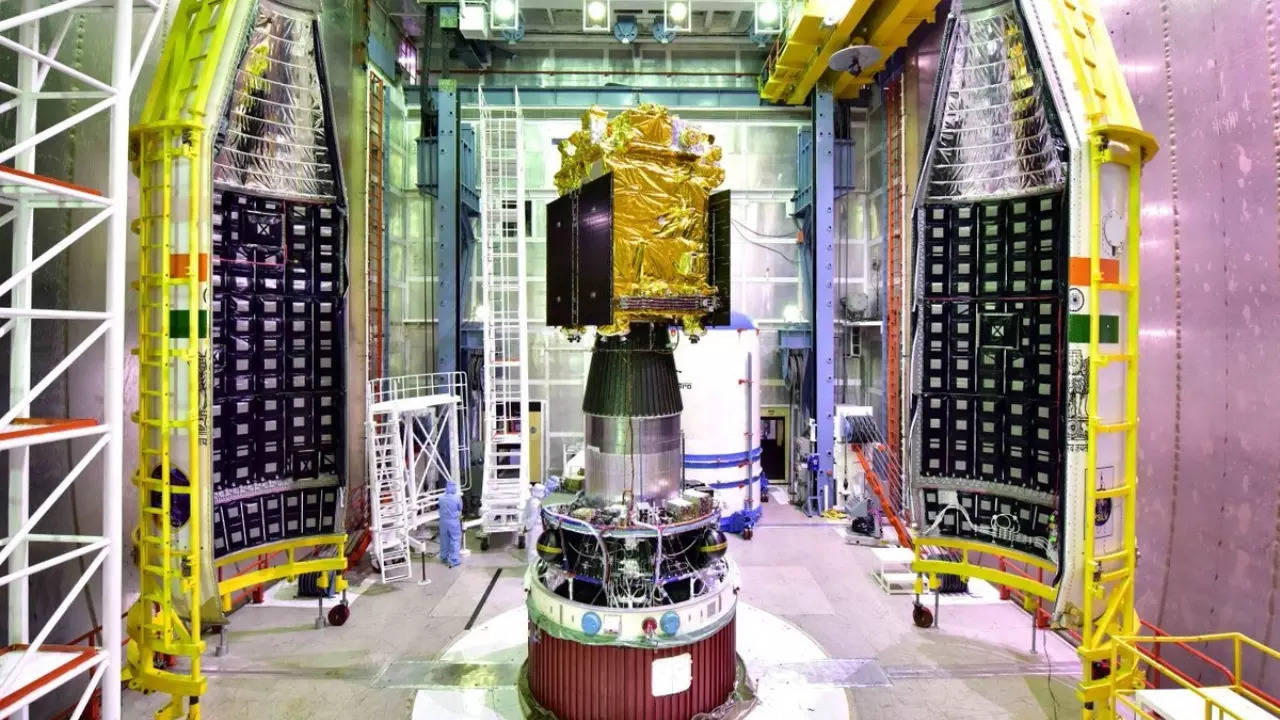BENGALURU: Aditya-L1, India’s first solar space observatory mission, commenced collecting scientific data with one of the instruments activated by Isro.
“The sensors of the STEPS instrument have begun measuring supra-thermal and energetic ions and electrons at distances greater than 50,000km from Earth. This data helps scientists analyse the behaviour of particles surrounding Earth,” Isro said on Monday.
Supra-thermal refers to a phenomenon of an entity having an energy greater than that associated with a comparable entity. STEPS is the Supra Thermal & Energetic Particle Spectrometer instrument, which is a part of the Aditya Solar Wind Particle EXperiment (ASPEX) payload.
STEPS comprises six sensors, each observing in different directions and measuring supra-thermal and energetic ions. “These measurements are conducted using low and high-energy particle spectrometers. The data collected during Earth’s orbits helps scientists to analyse the behaviour of particles surrounding the Earth, especially in the presence of the magnetic field of Earth,” Isro said.
It added that STEPS was activated on September 10 at a distance greater than 50,000 km from Earth. This distance is equivalent to more than eight times the Earth’s radius, placing it well beyond Earth’s radiation belt region.
“After completing the necessary instrument health checks, data collection continued until the spacecraft had moved farther than 50,000 km from Earth. Each unit of STEPS is operating within normal parameters,” Isro said.
STEPS was developed by the Physical Research Laboratory (PRL) with support from the Isro Space Application Centre (SAC).
“These STEPS measurements will persist during the cruise phase of the Aditya-L1 mission as it progresses toward the Sun-Earth L1 point. They will continue once the spacecraft is positioned in its intended orbit. Data collected around L1 would provide insights into the origin, acceleration, and anisotropy of solar wind and space weather phenomena,” Isro added.
“The sensors of the STEPS instrument have begun measuring supra-thermal and energetic ions and electrons at distances greater than 50,000km from Earth. This data helps scientists analyse the behaviour of particles surrounding Earth,” Isro said on Monday.
Supra-thermal refers to a phenomenon of an entity having an energy greater than that associated with a comparable entity. STEPS is the Supra Thermal & Energetic Particle Spectrometer instrument, which is a part of the Aditya Solar Wind Particle EXperiment (ASPEX) payload.
STEPS comprises six sensors, each observing in different directions and measuring supra-thermal and energetic ions. “These measurements are conducted using low and high-energy particle spectrometers. The data collected during Earth’s orbits helps scientists to analyse the behaviour of particles surrounding the Earth, especially in the presence of the magnetic field of Earth,” Isro said.
It added that STEPS was activated on September 10 at a distance greater than 50,000 km from Earth. This distance is equivalent to more than eight times the Earth’s radius, placing it well beyond Earth’s radiation belt region.
“After completing the necessary instrument health checks, data collection continued until the spacecraft had moved farther than 50,000 km from Earth. Each unit of STEPS is operating within normal parameters,” Isro said.
STEPS was developed by the Physical Research Laboratory (PRL) with support from the Isro Space Application Centre (SAC).
“These STEPS measurements will persist during the cruise phase of the Aditya-L1 mission as it progresses toward the Sun-Earth L1 point. They will continue once the spacecraft is positioned in its intended orbit. Data collected around L1 would provide insights into the origin, acceleration, and anisotropy of solar wind and space weather phenomena,” Isro added.
